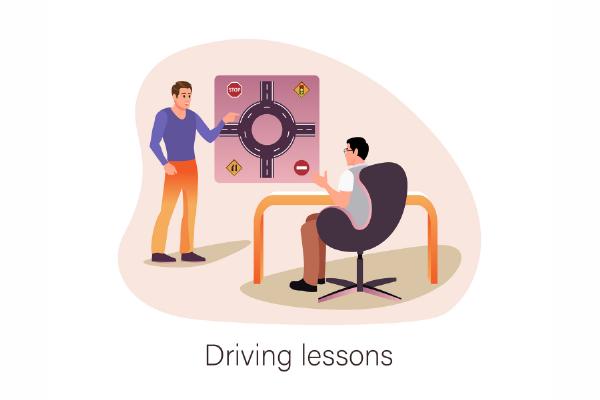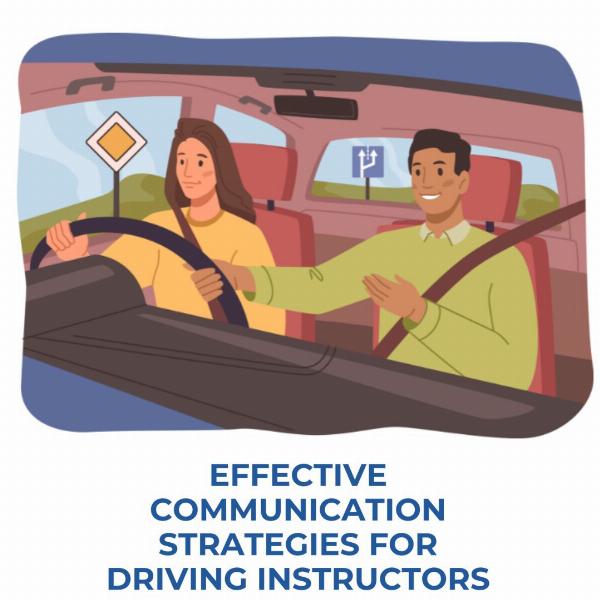 AI Blog Generation – Mass Content at Lightning Speed!
AI Blog Generation – Mass Content at Lightning Speed!
What to Do When a Driving Lesson Doesn’t Go as Planned
Written by Academy Of Road Safety » Updated on: June 17th, 2025

If you’re a driving instructor, you’ve probably had at least one instance where you’re midway through a lesson and things suddenly go downhill. Maybe the learner got nervous in heavy traffic or their lack of understanding of a driving maneuver led to many mistakes. No matter the issue, if a driving lesson doesn’t go as planned, it affects the learner and instructor both. While these moments can be stressful, they’re also an inevitable part of teaching someone to drive. However, driving instructors should know how to handle these situations positively. Driving instructor courses can help new instructors in Australia gain insight into such complicated situations and how to handle them. Joining a good course like TLI41222 from a reputed driving school can give you the right tools and resources needed to improve your teaching skills. But for all those who can’t or don’t want to join a course, this post will offer some practical tips for navigating lessons that don’t go as planned:
Tips to Handle a Disappointing Driving Lesson
When a driving lesson doesn’t go as planned, how the instructors handle themselves can set the tone for how the drivers tackle such issues too. Here’s what you can do as an instructor:
Maintain a Calm Demeanour:
When something unexpected happens in a driving lesson, learners often panic or look towards their instructors for guidance and reassurance. It’s also normal for the instructors to feel nervous, frustrated, or anxious. However, if both learners and teachers start panicking, it won’t end well, right? As instructors, you must stay calm and learn to take things in stride. Instead of getting worked up or tensed, try to relax and de-escalate the situation. By relaxing, you can help the students relax and let go of their stress. You can reassure them that a few mistakes don’t mean failure and that there’s always scope for improvement.
Identify the Main Problem:
If well-planned lessons go wrong, it means there’s some underlying problem causing a sudden hindrance in your planned lesson flow. The usual suspects are tension, stress, anxiety, etc. which can cause a learner to commit mistakes by freezing or getting hyper. However, there can also be some external factors such as mechanical failure or sudden incoming vehicle, etc. Identifying this underlying issue is the key to solving the problem. Talk to your students and try to get to the crux of the problem and find working solutions.
Adjust Your Teaching Style:
Often instructors make the mistake of making their teaching styles their comfort zones. Ideally, it should be the opposite, i.e., instructors should adjust their teaching methods to the students’ learning styles to make them feel more comfortable. Even when a lesson doesn’t go as planned and you feel like it’s due to your current teaching style, you should adjust your methods to help the students understand better. Try to find out what about your teaching approach is not suitable for the students and adjust it to increase their comfort level.
Discuss Problems and Concerns Openly:
Open and honest communication is the basis of all problem-solving initiatives. When you’re looking to find the issues that led to lesson failure, you and the students must be honest with each other. Encourage students to open up to you about any mistakes they committed or if they found any part of your behaviour stressful or pressurizing. Let them express their concerns regarding their driving skills or your teaching methods openly and then reassure them that they can always correct their mistakes and become better drivers.
Turn Mistakes into Learning Opportunities:
Mistakes are an inevitable part of the learning process. Without mistakes, the students will never know the extent of their knowledge, their strengths and weaknesses, and their abilities to handle various situations. So, it’s wise to teach students to view mistakes as stepping stones for improvement. Encourage them to find out the reason for their mistakes and work on weak points to improve. It helps build confidence without discouraging them from learning further.
Reschedule Lessons if Necessary:
Not everyone can learn at the same pace. Some people grasp things quickly and execute them easily while others may need more time and practice to master the same maneuver. Lack of time should never be a hindrance to learning. If you feel that the student is not able to grasp your teaching at that moment, it’s better to stop and take a break. Instead of trying to force them to learn on marked time, you should reschedule the lesson for a better time. This helps the students relax and perform better the next time as they won’t have the added pressure of time constraints.
Reflect and Debrief After the Lesson:
Once a lesson starts going downhill, it’s hard to get back into a good mood. However, leaving the student dejected can break their confidence and increase their nerves. It’s better to end the session on a positive note. Go through the entire lesson and review the mistakes made and their causes. Also, discuss their strengths and progress and ask them to share any concerns. All this helps to build a good rapport with the students, help them open up and be honest, and reinforce in them the confidence to try harder and become better.
Conclusion
The role of a driving instructor is not just to prepare students to pass their driving tests. Instead, it’s to help create a safer future with skilled, confident, and responsible drivers capable of calmly navigating challenging road and traffic conditions. Hence, driving instructors must also be prepared to face adversities like failed lessons in their drive to educate their students. Driving instructor courses can help instructors learn the best ways to handle situations like a planned lesson going awry. It can help instructors become expert professionals able to impart good driving skills and develop other abilities in their students. Reputed institutes like the Academy of Road Safety offer various accredited and non-accredited courses to prepare expert instructors capable of instilling good habits in students and contributing to safer roads for everyone.
Note: IndiBlogHub features both user-submitted and editorial content. We do not verify third-party contributions. Read our Disclaimer and Privacy Policyfor details.
Copyright © 2019-2025 IndiBlogHub.com. All rights reserved. Hosted on DigitalOcean for fast, reliable performance.

















